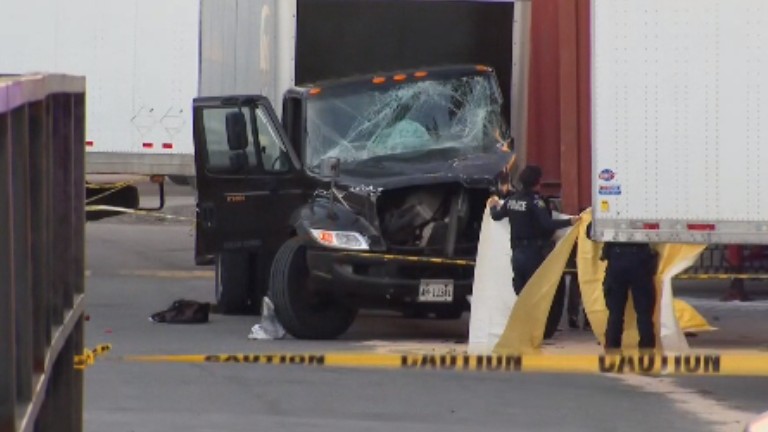Where Toronto mayoral candidates stand on arts & culture
Posted September 29, 2014 5:36 pm.
This article is more than 5 years old.
Two mayoral underdogs held their own against the top three contenders during a debate on arts and culture at TIFF Bell Lightbox on Monday.
Morgan Baskin, 19, and Ari Goldkind joined Doug Ford, John Tory and Olivia Chow in a debate that stood out for its civility after some of the raucous ones that preceded it.
Ford, who went out of his way to attack Tory the last time the two sat together, was markedly quiet and respectful, although Baskin took a shot at him for voting against numerous arts initiatives over the years.
Ford said he was a closet art collector, and was committed to investing in the arts, vowing to bring a “world-class music festival to Toronto.”
Chow said she will create Global Toronto — a group that would bring arts communities together and promote the sector.
Below are some of the leading candidates’ policies on the arts:
Olivia Chow:
- supports establishing a city music office, which would cost $500,000 a year, that would complement the existing film office; funding for music office would come from the $10 million billboard tax.
- would increase funding to $25 per capita as outlined in the current budget, up from current $22.5 per capita.
- supports the development of emerging cultural scene.
- establish access to affordable, sustainable cultural spaces, such as the Artscape program.
Doug Ford
- no details were available on his website regarding arts and culture, but at Monday’s meeting Ford said he was in favour of establishing a “world-class” music festival in the city and cited his trip with his mayor brother to Austin, Tex., last fall as the initial step in making it happen.
- as councillor, Doug Ford voted last year in favour of council approving $6 million in funding for arts and culture programs, unlike Rob Ford who along with Giorgio Mammoliti and Denzil Minnan-Wong were among a handful not present for that vote.
John Tory:
- also supports opening of a music office in 2015 which he says is intended to reduce red tape for music festivals and live events, stimulate greater activity in the music community and identify new opportunities for new events.
- he would appoint a creative economy advocate within the mayor’s office, who will act as a liaison between the creative community and the mayor.
- work with city staff, arts organizations and the private sector to see what non-tax measures are available to meet and even exceed the $25 per capita arts funding goal by 2017.
- explore ways to create more affordable living and work spaces for artists, including vacant storefronts, abandoned warehouses and city-owned spaces.










